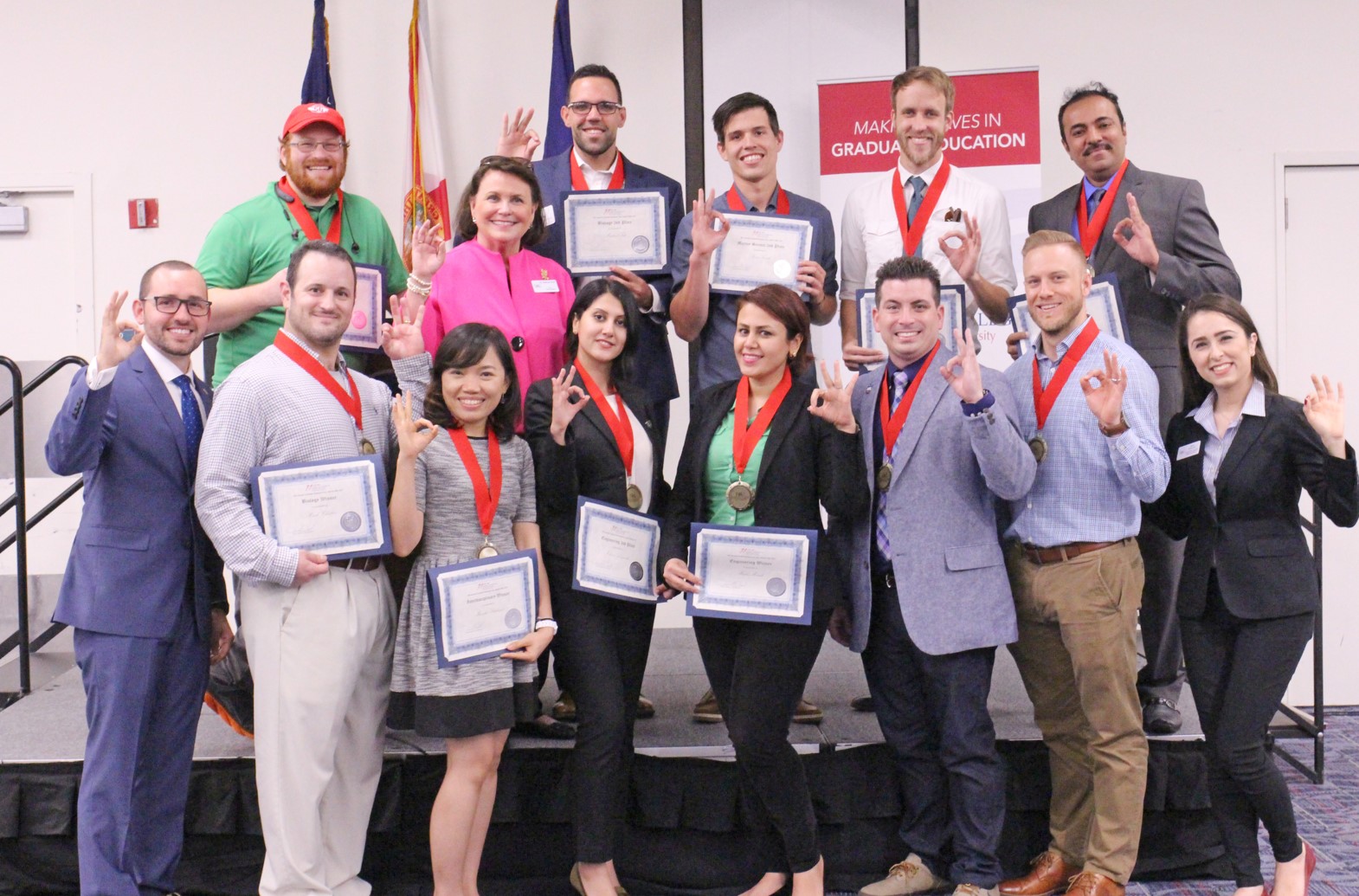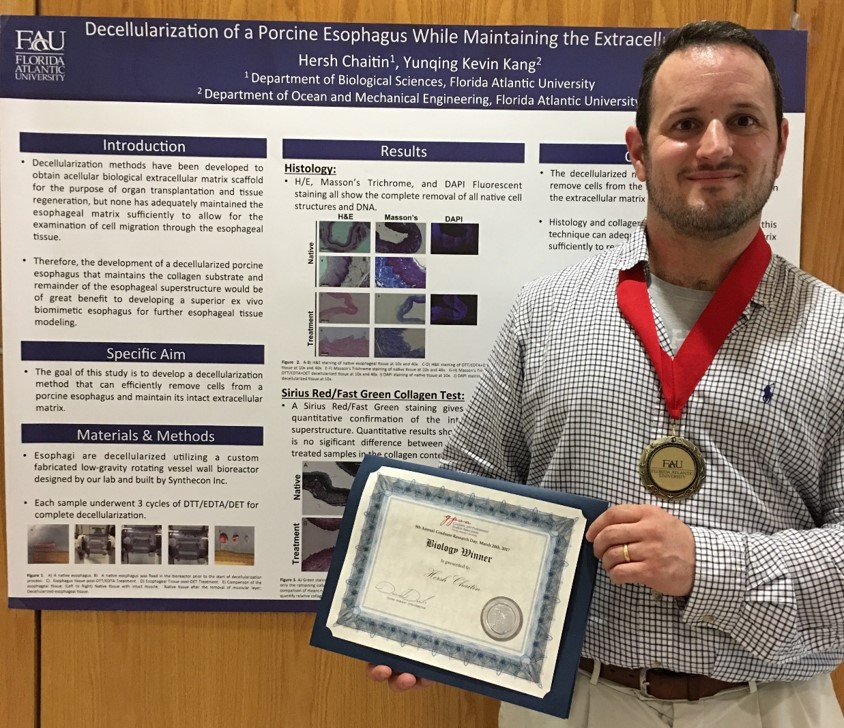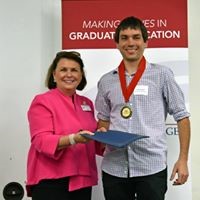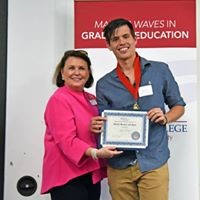
 Hersh Chaitin presented a poster entitled "Decellularization of a Porcine Esophagus While Maintaining the Extracellular Matrix." Hersh began the program in 2015 after completing FAU's PSM Business in Biotechnology Master's degree. He is a member of Dr. Kevin Kang's Biomaterials group, which is currently researching biomaterial applications in cancer treatment. Hersh's thesis research involves creating a 3D esophagus tumor model in order to better understand and treat small cell esophageal cancer.
Hersh Chaitin presented a poster entitled "Decellularization of a Porcine Esophagus While Maintaining the Extracellular Matrix." Hersh began the program in 2015 after completing FAU's PSM Business in Biotechnology Master's degree. He is a member of Dr. Kevin Kang's Biomaterials group, which is currently researching biomaterial applications in cancer treatment. Hersh's thesis research involves creating a 3D esophagus tumor model in order to better understand and treat small cell esophageal cancer.  David Bradshaw began working in the laboratory of Dr. Peter McCarthy in the fall of 2015 and he presented a poster entitled "Baseline microbial communities in the Indian River Lagoon and Eau Gallie River, FL before dredging." The main objective of his dissertation research is to determine the largely unexplored diversity of bacterial and archaeal communities in the Indian River Lagoon, FL, an economically and biologically important estuary. He will be determining how prokaryotic populations change in response to natural and human impacts. The ultimate goal of this research is to determine whether groups of specific community members can act as indicators of evironmental health.
David Bradshaw began working in the laboratory of Dr. Peter McCarthy in the fall of 2015 and he presented a poster entitled "Baseline microbial communities in the Indian River Lagoon and Eau Gallie River, FL before dredging." The main objective of his dissertation research is to determine the largely unexplored diversity of bacterial and archaeal communities in the Indian River Lagoon, FL, an economically and biologically important estuary. He will be determining how prokaryotic populations change in response to natural and human impacts. The ultimate goal of this research is to determine whether groups of specific community members can act as indicators of evironmental health.  In the marine sciences category, Jake Lasala presented his poster entitled "Promiscuity in marine turtles nesting in southern Florida." He is currently a PhD student in Dr. Jeanette Wyneken's laboratory and his research involves two imperiled species of marine turtles that nest in southern Florida, the green sea turtle and the leatherback turtle. His research aims to identify the number of males that contribute to the nests on our local beaches and determine how many males there should be in these populations. His work has identified multiple paternity in both species (females can store sperm) and determined that there are more males in the population than expected. These male biased breeding sex ratios are incredibly encouraging that these turtle populations are in fact increasing and not in danger of losing genetic diversity.
In the marine sciences category, Jake Lasala presented his poster entitled "Promiscuity in marine turtles nesting in southern Florida." He is currently a PhD student in Dr. Jeanette Wyneken's laboratory and his research involves two imperiled species of marine turtles that nest in southern Florida, the green sea turtle and the leatherback turtle. His research aims to identify the number of males that contribute to the nests on our local beaches and determine how many males there should be in these populations. His work has identified multiple paternity in both species (females can store sperm) and determined that there are more males in the population than expected. These male biased breeding sex ratios are incredibly encouraging that these turtle populations are in fact increasing and not in danger of losing genetic diversity.
